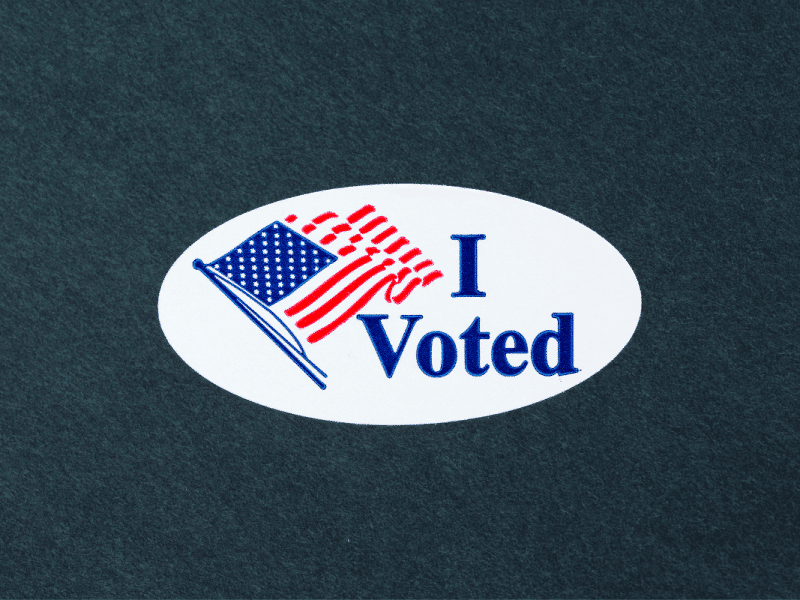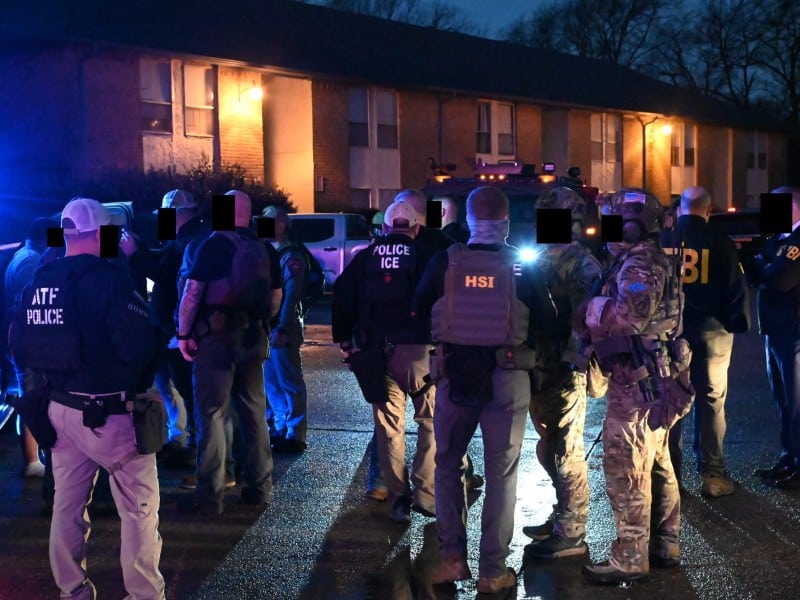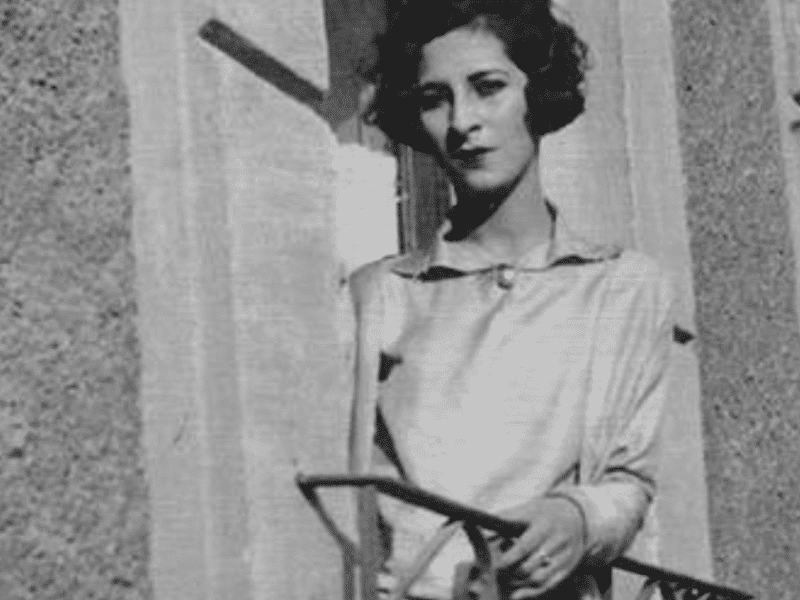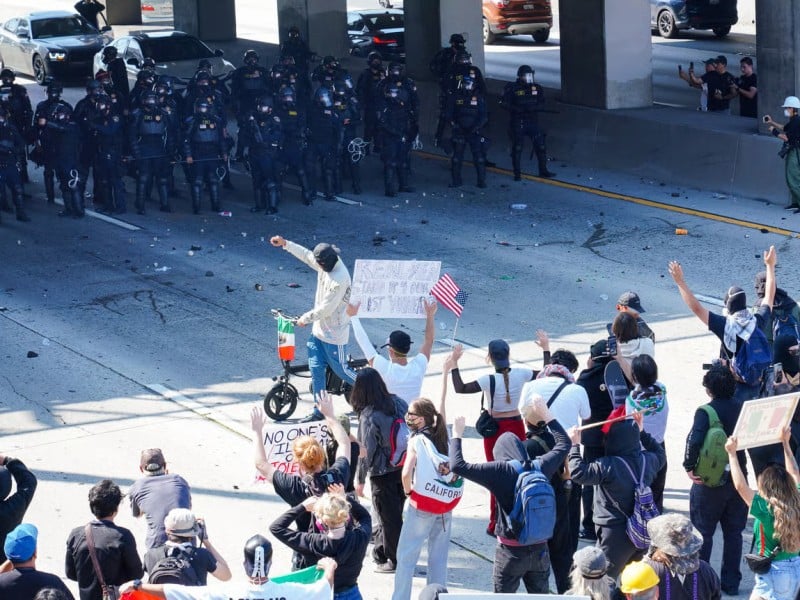High School Latina Voters Share Hopes and Challenges
Many young Americans are stepping into a new chapter this year as they gain the right to vote. Across the country, high school seniors who have turned 18 are casting their ballots this election cycle.

Originally published in The Latino Newsletter–reprinted with permission.
The third story for The Latino Election Project from The Latino Newsletter and New England Public Media.
As the 2024 election season unfolds, the Latino Election Project from The Latino Newsletter and New England Public Media features the work of student producers Ian Burger, Halima Mohamed, and Evanni Santos with support from Donyel Le’Noir Felton. The team is reporting on election cycle stories through the lens of the Latino community in western Massachusetts.
This is part three of a five-part series. Parts one and two are here. Part four will talk with Latino business leaders. The series wraps up with a post-election story.
SPRINGFIELD, MA — Many young Americans are stepping into a new chapter this year as they gain the right to vote. Across the country, high school seniors who have turned 18 are casting their ballots this election cycle. At Discovery Polytechnic Early College High School in downtown Springfield, students spoke with The Latino Election Project about their newfound civic responsibilities.
Izzy Martinez, an 18-year-old student, shared her excitement and the sense of responsibility that comes with voting for the first time.
“Yes, I believe our voice matters and my voice matters, particularly to just my community on a small scale, because I’m just a high school student, but it’s a lot more than that,” she said. “I’m part of a brand new high school and there’s a lot of new things going on in our city. I feel like I’ve made great connections and been able to talk about my school a lot. Having those opportunities to speak up is really important. The more you say something, someone will eventually listen to you.”
While some students feel empowered by their newfound right to vote, others expressed hesitancy and pressure.
Saydie Rivers, also 18, shared her worries about making the right choice.
“I thought about it. I thought about not doing it because I didn’t want people to shame me if I pick the wrong person and the world and the economy goes… it’s bad,” she explained. “It’s a lot to process, and I don’t know who to vote for or who would be best for our world.”
Despite the pressure, some students are encouraged by teachers and family members. Soli Perez, another 18-year-old student, highlighted the support she receives at school.
“Definitely teachers are telling me it’s important that I vote now that I’m 18,” she said. “I do take a politics communication class at [Western New England University], and I’ve been getting way more information than I usually would through that class.”
Educators like WNEU political science professor Bill Mandel stressed the importance of youth participation in elections.
“This may be the most important election I’ve voted in, in my lifetime,” Mendel said. “It really determines which direction the country’s going to go in. I wouldn’t miss it.”
Zulmalee Rivera Delgado, of the community organization Neighbor to Neighbor, pointed out the challenges that first-time voters face.
“Once you’re registered to vote, you’re ready to go. I think it’s always going to be a learning curve for students to know how politics work in their lives because civic engagement is not really a thing in grade school or the public education system,” she said. “But if you speak to students and connect how inflation, job insecurities, or the economy relate to government, it starts to make sense.”
Adriana Rua, a high school teacher at Discovery, provided this advice for young voters.
“When you vote, don’t think about the candidate that’s in front of you currently,” Rua said. “You’re voting for the next four years, which will extend to four to six years because we always have an extension of what they do. Even though at 18 you’re in one place, remember that person will be there until you’re 22.”
Votantes latinas de secundaria comparten esperanzas y desafíos
Con el derecho al voto en mano, muchos jóvenes en Estados Unidos están comenzando una nueva etapa este año. A través del país, estudiantes de secundaria que han cumplido 18 años están participando en estas elecciones. En Discovery Polytechnic Early College High School, en el centro de Springfield, los estudiantes compartieron sus perspectivas con El Proyecto Electoral Latino sobre sus nuevas responsabilidades cívicas.
Izzy Martinez, una estudiante de 18 años, describe su entusiasmo y el sentido de responsabilidad que siente al votar por primera vez.
“Sí, creo que nuestra voz importa y mi voz importa, especialmente para mi comunidad en una escala pequeña, porque solo soy una estudiante de secundaria, pero es mucho más que eso”, dice. “Soy parte de una escuela secundaria nueva y hay muchas cosas nuevas ocurriendo en nuestra ciudad. Siento que he hecho grandes conexiones y he podido hablar mucho sobre mi escuela. Tener esas oportunidades de expresarse es realmente importante. Cuanto más dices algo, eventualmente alguien te escuchará”.
Aunque algunos estudiantes se sienten empoderados por su nuevo derecho al voto, otros expresan dudas y presión.
Saydie Rivers, también de 18 años, comparte sus preocupaciones sobre tomar la decisión correcta.
“Lo pensé. Pensé en no hacerlo porque no quería que la gente me criticara si elijo a la persona equivocada y el mundo y la economía… se va todo al traste”, dice. “Es mucho que procesar, y no sé por quién votar ni quién sería el mejor para nuestro mundo”.
A pesar de la presión, algunos estudiantes encuentran apoyo en sus maestros y familiares. Soli Perez, otra estudiante de 18 años, destaca el respaldo que recibe en la escuela.
“Definitivamente los maestros me están diciendo que es importante que vote ahora que tengo 18 años”, comenta. “Tomó una clase de comunicación política en [Western New England University], y he estado recibiendo mucha más información de la que normalmente recibiría gracias a esa clase”.
Educadores como Bill Mandel, profesor de ciencias políticas en WNEU, describen la importancia de la participación de los jóvenes en las elecciones.
“Ésta puede ser la elección más importante en la que he votado en mi vida”, dice Mandel. “Realmente determina en qué dirección va a ir el país. No me la perdería”.
Zulmalee Rivera Delgado, de la organización comunitaria Neighbor to Neighbor, señala los desafíos que enfrentan los votantes primerizos.
“Una vez que estás registrado para votar, ya estás listo para participar. Creo que siempre habrá una curva de aprendizaje para que los estudiantes comprendan cómo funciona la política en sus vidas porque el compromiso cívico no es realmente algo que se enseñe en la escuela primaria o en el sistema de educación pública”, explica. “Pero si hablas con los estudiantes y conectas cómo la inflación, la inseguridad laboral o la economía se relacionan con el gobierno, comienza a tener sentido”.
Adriana Rua, una maestra de Discovery, ofrece este consejo a los jóvenes votantes.
“Cuando votes, no pienses en el candidato que tienes delante en este momento”, aconseja Rua. “Estás votando para los próximos cuatro años, que se extenderán a cuatro o seis años porque siempre hay una extensión de lo que hacen. Aunque a los 18 estés en un lugar, recuerda que esa persona estará ahí hasta que tengas 22 años”.
Ésta es la tercera entrega de una serie de cinco reportajes de El Proyecto Electoral Latino.




